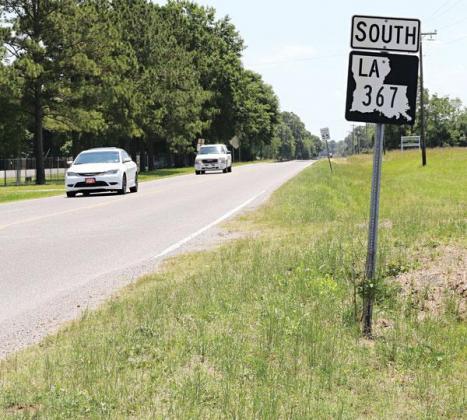
Staff Report
As legislators are considering a proposal to raise the state’s fuel tax by 17 cents a gallon, a report outlined the state’s transportation infrastructure needs.
The 17 cents would generate about $510 million in annual recurring revenue, according to a report from the Task Force on Transportation Infrastructure Investment.
The report recommends $700 million in additional annual funding. However, the report stated the $510 million if indexed properly would be enough revenue to meet the state’s needs.”
The co-chairmen of the report were Shawn Wilson, state Department of Transportation and Development secretary, and industry executive John Basilica.
They also unveiled district profile sheets for each member of the legislature, articulating needs by legislative district and which projects could be constructed in the upcoming fiscal year with additional revenue.
The district profiles are:
Rep. Phillip DeVillier, District 41: 2,135 miles of of road; 223 bridges; eight airports; and one port.
District 41’s needs are stated as 318 miles of road repairs; 23 bridges to be repaired or replaced; for a total of $145 million in needs.
Fiscal year 2017-18 project improvements with increased funding are:
— La. 95 overlay from La. 104 to La. 29 at a cost of $6,265,000;
— La. 367 overlay from La. 370 to U.S. 190 at a cost of $1,065,000;
— La. 13-La. 100-Interstate 10 access road improvements at a cost of $2,575,00;
— I-10 Acadia Parish tree removal at a cost of $1,610,659; and
— Union Pacific Railroad crossing upgrades at a cost of $1,250,000.
Rep. Dustin Miller, District 40: 1,229 miles of roads; 156 bridges; five airports; and one port.
District’ 40’s needs are stated as: 167 miles of road repairs; 11 bridges need repair or replacement; for a total of $70 million in needs.
Fiscal year 2017-18 project improvements with increased funding are:
— U.S. 71 overlay from La. 10 to the Avoyelles Parish line at a cost of $6,525,000;
— I-49 La. 93 overpass replacement at a cost of $6 million; and
— I-49 pavement marking replacement at a cost of $1.5 million;
Rep. H. Bernard LeBas, District 38: 2,684 miles of roads; 239 bridges; eight airports; and three ports.
Fiscal year 2017-18 project improvements with increased funding are:
— U.S. 71 overlay from La. 10 to the Avoyelles Pairsh line at a cost of $6,525,00;
— La. 106 overlay from La. 13 to U.S. 167 at a cost of $3,143,000;
— La. 10 Palmetto Company Canal Bridge replacement at a cost of $1.5 million;
— La. 105 overlay from the St. Landry Parish line to La. 1183 at a cost of $6,265,000;
— U.S. 190 intelligent transportation system deployment at a cost of $2.2 million; and
— I-49 pavement marking replacement at a cost of $1.5 million.
The release follows the American Society of Civil Engineers’ April 26 presentation of its 2017 Infrastructure Report Card, an independent process where each state is graded based on technical analysis of its infrastructure system which includes grades on roads, bridges, ports and aviation.
The engineers’ report gave the state’s transportation infrastructure an average grade of D-plus.
Wilson said, “Louisiana has sat idly by for the last 28 years while 44 other states have increased their investment in transportation.”
He added, “Unfortunately, we’ve earned our poor rankings, but we can change our standing and act now to build a better Louisiana or accept the rapidly diminishing conditions that will strangle economic development and quality of life.”
A team of approximately 50 volunteer civil engineers across Louisiana spent 18 months analyzing and grading 11 infrastructure areas to produce the report, which is available at infrastructurereportcard.org/louisiana.
Former DOTD secretary Dr. Kam Movassaghi served as executive director of the Report Card project.
Movassaghi noted in a news conference that little has been done by state political leaders to improve Louisiana’s infrastructure since the 2012 Report Card was released. That report called on the governor and legislators to begin making significant infrastructure investments to improve the health, safety and economic competitiveness of the state.
Movassaghi urged legislators to pass measures to put more money into Louisiana’s public infrastructure. The 2017 session features several proposals, for example, to increase funding for transportation infrastructure. Louisiana’s 20-cents-per-gallon gasoline tax, the state’s primary funding source for roads and bridges, has not been adjusted since 1990 and is among the lowest in the nation, according to the American Petroleum Institute.
The report stated there is $13.1 billion backlog of transportation infrastructure projects in Louisiana; the state has the 44th lowest gas tax in the U.S.; and the state ranks 50th in overall transportation investment.
